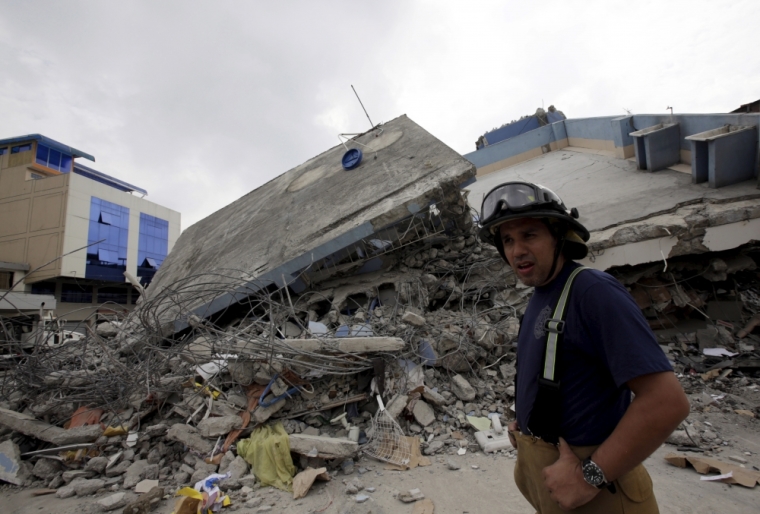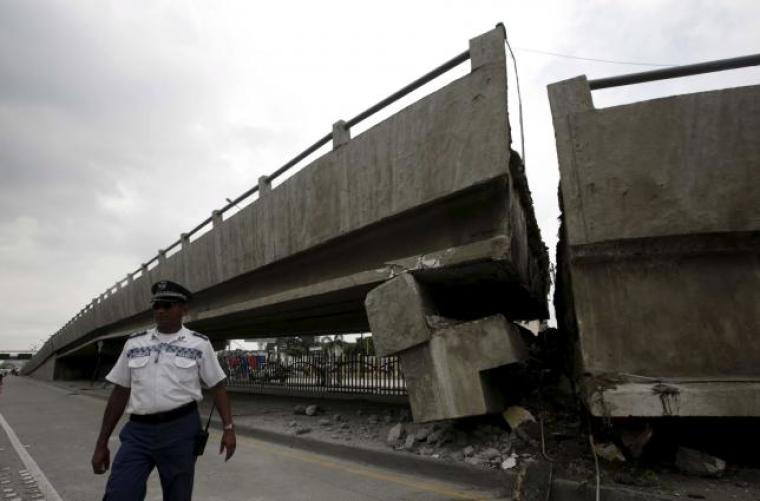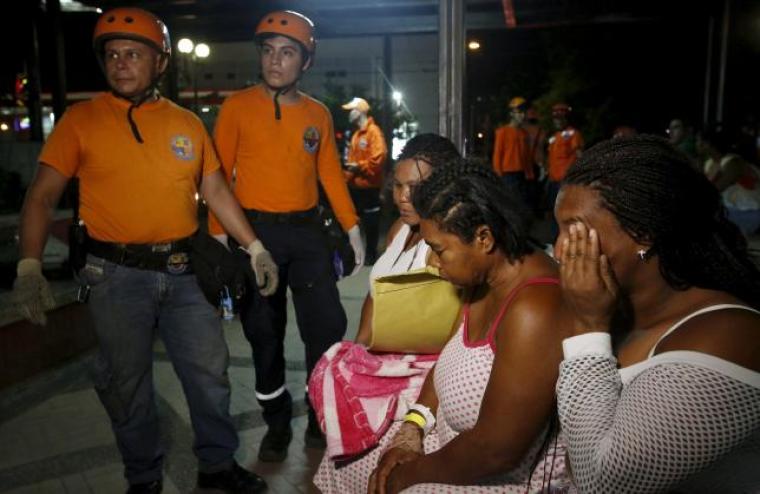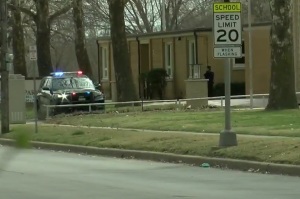'God, Please Stop That:' Ecuador 7.8-Magnitude Quake Is 'Absolute Tragedy' as Death Toll at Least 272
Rescue workers in Ecuador continue searching for survivors of a 7.8-magnitude earthquake on Saturday night, which has killed at least 272 people so far and injured over 2,500.
"The first hours are crucial," said Ecuador's President Rafael Correa, according to CNN. "We're finding signs of life in the rubble. We're giving this priority. After, we'll work to find and recover bodies."
The hardest hit areas were reportedly the cities of Manta, Portoviejo and Pedernales, with close to 200 people killed in the Manabi Province alone.
One survivor told BBC News that electricity in Guayaquil is still very unstable and that phone lines are bad, while others recalled the fear and panic that set in when the earthquake started.
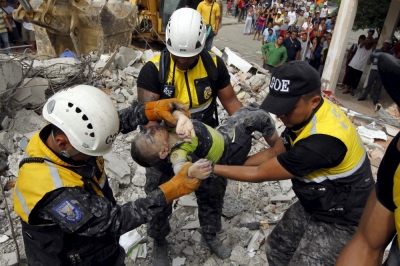
"I never felt something like that in my life, never! Because in Ecuador this is not common. It was so strong. I was feeling very, very scared," said Carla Perralta in Boyaca.
"Suddenly everything was dark; the light was off; like a movie. I only was thinking 'God, please stop that, because maybe I die today.'"
Another survivor, Simon Gordon, described the tragedy as "an extremely scary experience."
"I live in Guayaquil and we got hit pretty hard. Cities around us have been affected so badly. My first ever experience of an earthquake and I'm just relieved that my wife and family are all OK. RIP to all those who passed. What an absolute tragedy," he said.
Reuters reported that rescue crews and firefighters have set up tents around the country to store bodies, treat the injured, and distribute necessities among the survivors.
Correa, who surveyed the damage in Manabi on Sunday night, admitted that the death toll is likely to rise.
"Ecuador has been hit tremendously hard," the president said in a televised address.
"I fear that figure will go up because we keep on removing rubble," he added.
"There are signs of life in the rubble, and that is being prioritized."
Ecuador's Interior Ministry ordered all nightlife venues to be closed down for the next several days, as the country begins recovery efforts in the face of the largest quake it has experienced since 1979.
A smaller 7.2-magnitude quake in March 1987 was even more deadly, the U.S. Geological Survey pointed out, however, killing close to 1,000 people.
The Ecuadorian Red Cross has joined in relief efforts with more than 800 volunteers and staff, assisting with search and rescue operations, as well as providing psychosocial support and first aid.
"Our international network is giving the Ecuadorian Red Cross all support to respond to this terrible disaster," said Walter Cotte, the Americas Regional Director for the International Federation of Red Cross and Red Crescent Societies.
"Depending on the number of health facilities affected there may also be urgent needs around maternal and obstetric care. We should also expect urgent needs around food, water, sanitation and shelter," he added.










